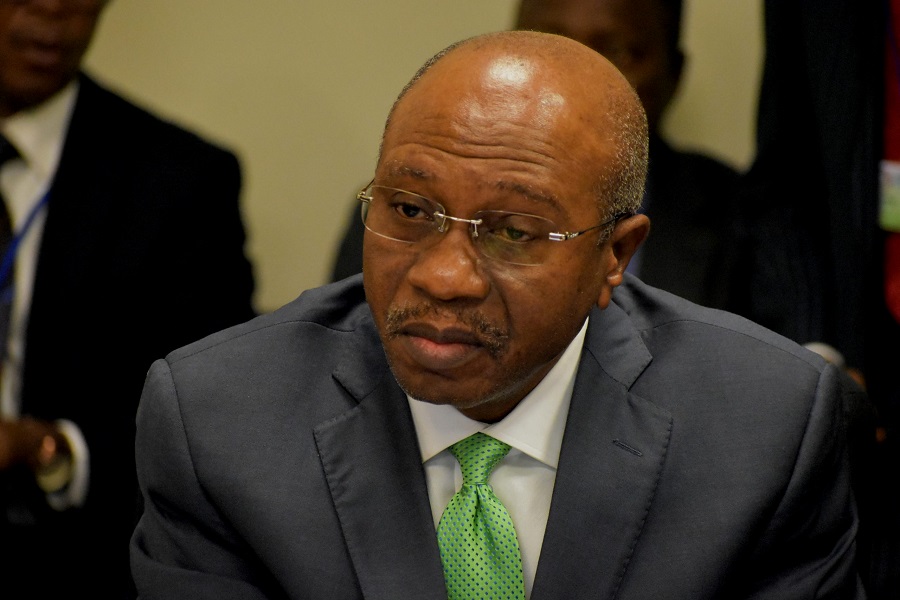Business
2022, Year Of Steep Naira Depreciation – CBN

The Naira suffered steep depreciation in 2022 with the national currency losing between at least 11 per cent and 23 per cent.
Analysis of the exchange rates’ movements showed that the naira lost 11 per cent of its value at the official market and was worse at the parallel market, where it lost not less than 23 per cent of its value.
The local currency, which started the year at N416 per dollar in January 2022 at the Investors and Exporters (I & E) Window foreign exchange market, closed the year at N461.50 per dollar, translating to about 11 per cent year on year depreciation.
At the black market, where most independent users source and trade forex, the naira closed at N735 per dollar, compared with its 2022’s opening rate of N565 per dollar.
Most analysts blamed Central Bank of Nigeria (CBN)’s policies for the currency woes as forex scarcity and speculation sustained a year-long volatility, amidst rising inflation.
The CBN had in the last one year taken major steps to stabilize the naira. The apex bank introduced the naira-for-dollar policy allowing foreign currency recipients to earn N5 for every dollar sent.
The CBN had promised that the new policy would provide Nigerians in the Diaspora with cheaper and more convenient ways of sending remittances to the country.
CBN Governor, Godwin Emefiele said the policy implementation would increase the transparency of remittance inflows and reduce rent-seeking activities.
Managing Director, Financial Derivatives Company Limited, Bismarck Rewane, attributed the naira’s continued decline to heightened forex supply shortage, demand pressure and rationing. He said naira rates convergence would require adoption of a full floating exchange rate system determined by the forces of demand and supply.
In the same vein, the International Monetary Fund (IMF) said exchange rate rigidities have constrained the economy’s ability to absorb external shocks.
The IMF insisted that restrictions on access to foreign exchange for certain categories of goods, and multiple exchange rates create distortions in both private and public sectors decision making. They discourage long-term investment, encourage smuggling and provide avenues for corruption.
Moving forward, the Fund suggested removal of foreign exchange restrictions, and a full exchange rate unification, in line with the authorities’ Economic Recovery and Growth Plan (ERGP), will help keep the parallel market premium low in a more sustained manner.
It, therefore, called for unified exchange rate for the naira to promote growth and attractive foreign capital.
According to the IMF, foreign exchange backlog and shortages are intensifying Balance of Payment (BoP) pressures insisting that exchange rate unification was imperative to reduce BoP risks. It said that fiscal deficit will stay elevated in the medium term, while additional domestic revenue mobilisation is required to reduce fiscal risks.
Global Chief Economist at Renaissance Capital (RenCap), Charles Robertson, said Nigeria is in a difficult position and needs to increase its dollar earnings and other revenue to support the naira.
Business
Fidelity Bank To Empower Women With Sustainable Entrepreneurship Skills, HAP2.0
Business
President Tinubu Approves Extension Ban On Raw Shea Nut Export
Business
Crisis Response: EU-project Delivers New Vet. Clinic To Katsina Govt.
-
Maritime4 days ago
Nigeria To Pilot Regional Fishing Vessels Register In Gulf Of Guinea —Oyetola
-

 Sports4 days ago
Sports4 days agoGombe-Gara Rejects Chelle $130,000 monthly salary
-
Maritime4 days ago
Customs Declares War Against Narcotics Baron At Idiroko Border
-

 Sports4 days ago
Sports4 days agoTEAM RIVERS SET TO WIN 4×400 ” MORROW” …Wins Triple jump Silver
-
Maritime4 days ago
NIMASA,NAF Boost Unmanned Aerial Surveillance For Maritime Security
-

 Sports4 days ago
Sports4 days agoNPFL Drops To 91st In Global League Rankings
-

 Sports4 days ago
Sports4 days agoNIGER DELTA GAMES PANACEA TO YOUTH DEV”
-

 Sports4 days ago
Sports4 days agoNPFL Impose Fines On Kwara United Over Fans Misconduct

